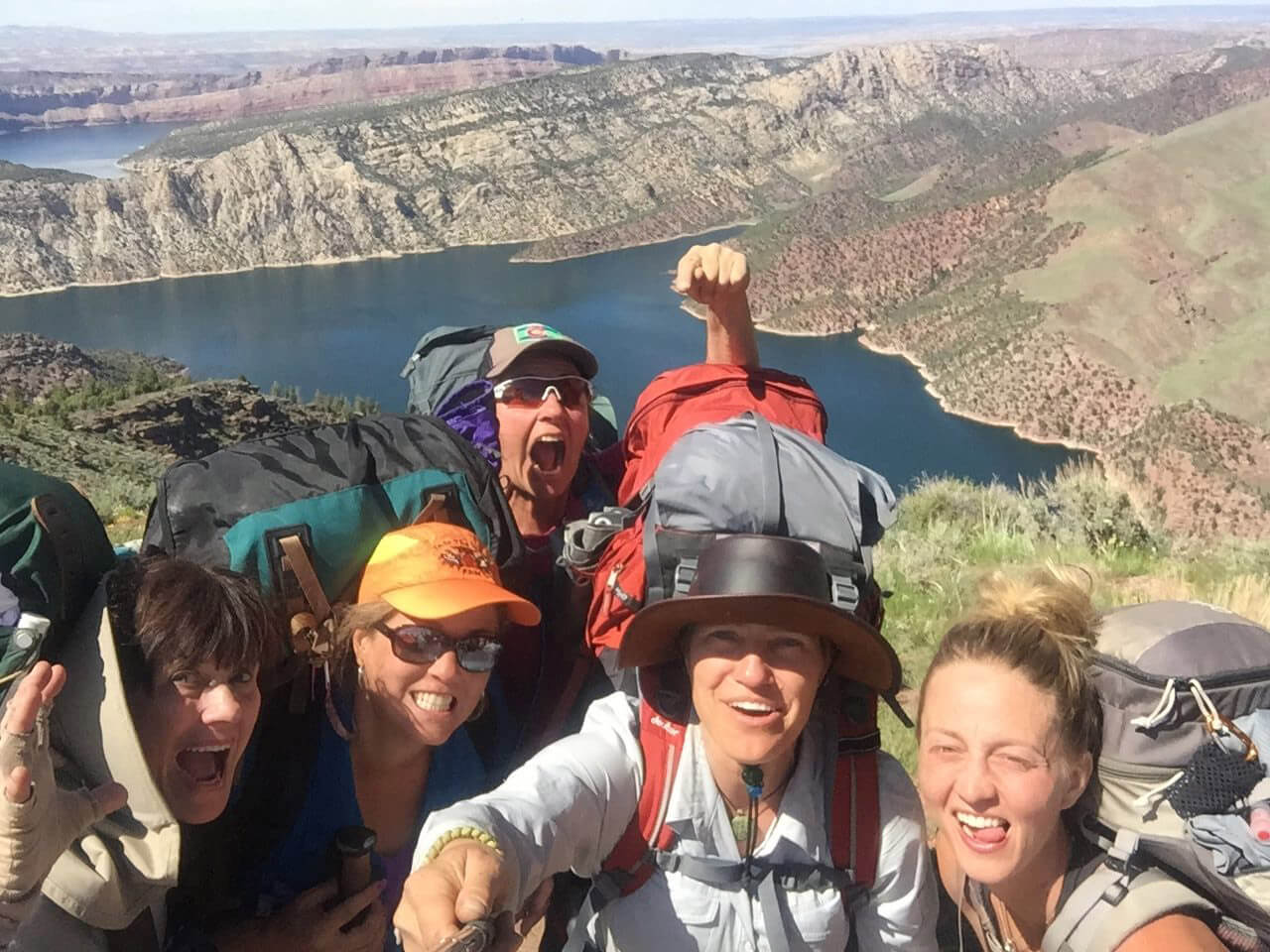
For: Those ready to take it to the next level. Serious hikers, backpackers, firefighters, SAR personnel, and anyone else looking for rigorous dirt-time perfecting functional baseline outdoor survival skills.
If you are concerned about keeping yourself and your loved ones safe when equipment malfunctions, weather turns, injuries happen, vehicles break down, batteries die, or a multitude of other issues come up-this is the training week for you.
Training covers: The five basic needs of a survivor; how to decide whether to stay put or hike out; choosing and maintaining the ultimate survival tool-your knife; Choosing clothing and equipment for various environments and scenarios; Signaling-the unsung and most important survival skill; Comprehensive Back-Country Travel Methodology: making and completing a six point checklist, understanding maps and compasses, using natural navigation techniques, safe walking techniques for various terrain, and modifying a heading; Water as in practicing how to find, purify, and store it; Knots for a variety of applications; Shelters: selecting good sites and building your own for multiple nights; Fire concepts, learn to build a fire quickly and safely; Food: the edibility test for plants, and some basic simple snares for various types of game and fish; First Aid, Hygiene, and Self-care basics; and Survival Kit preparation.
Complete Course Description:
-The Five Basic Needs: What are they and how can you use that knowledge to make a plan in any situation?
1. Signaling
2. Personal Protection: Clothing/Equipment, Shelter craft, Fire craft
3. Health
4. Travel Techniques
5. Sustenance: Water, Food
-Your Knife: How to choose the right one for your needs, how to choose a good sharpening device and how to sharpen and maintain your knife in top condition.
1. Choosing the right one for the job
2. Tools to sharpen
3. How to sharpen
4. How to keep it in top shape
-Selecting Clothing and Equipment: How to choose and refine what you take with you on a backpacking trip, rescue mission, day hike, remote four-wheel drive track, etc.
1. The COLDER Principle for clothing systems
2. How much is just right?
3. Gear selection
4. Backpacking basics and what to look for in a good backpack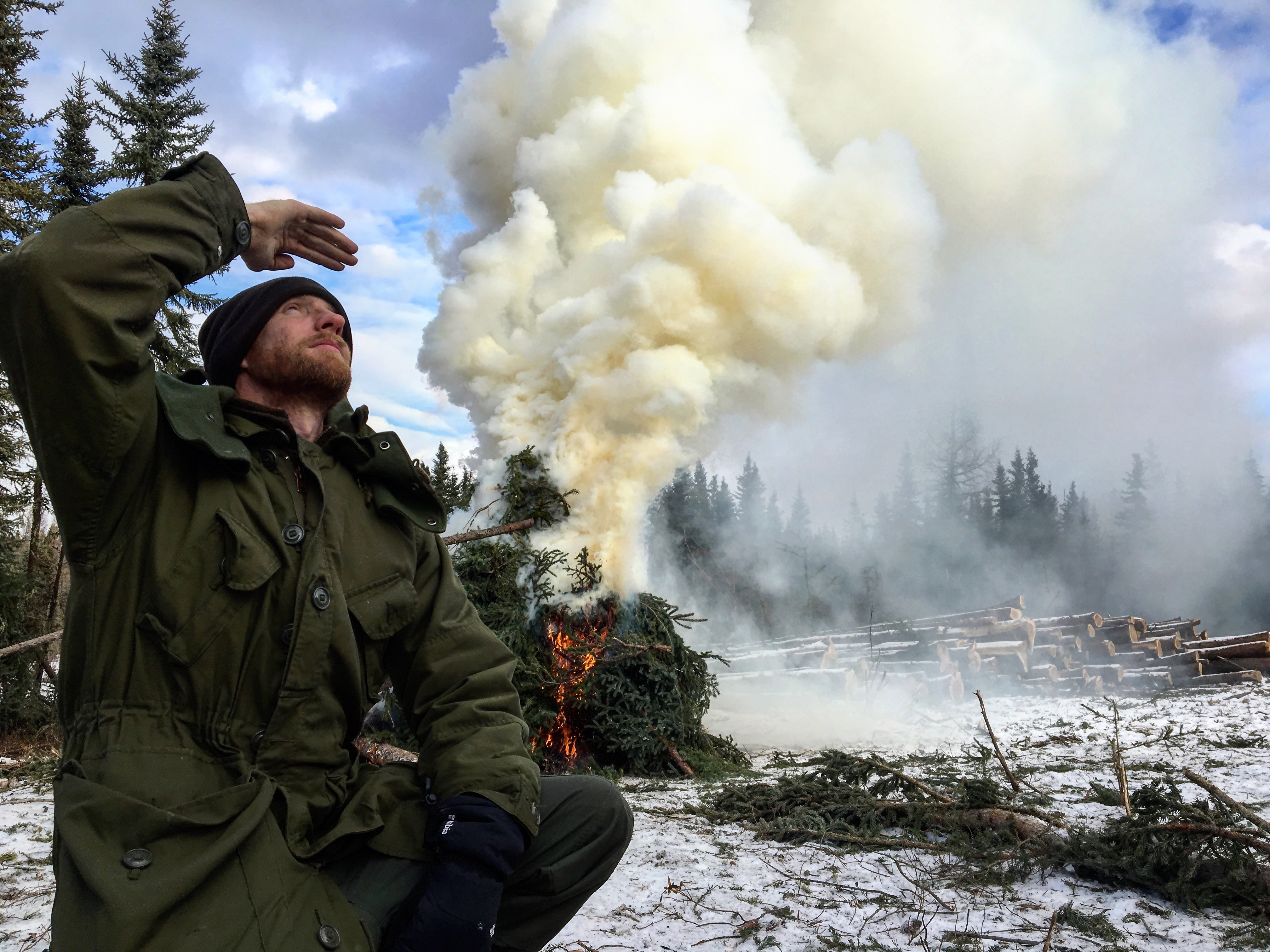
-Signaling: Learn methods to make yourself BIG, how to aid rescuers in your own recovery and return home safely.
1. Learn the three types of signals
2. Know what to look for in a good Signaling/Recovery site
3. Understand how to prepare a recovery site
4. Practice vectoring in rescuers, etc…
-Travel Basics: Practice Navigation concepts to keep safe and in control if you must move.
1. When to/not to travel
2. Learn to REALLY read a map and use a compass
3. Practice using natural navigation aids
4. Learn and use efficient and safe movement techniques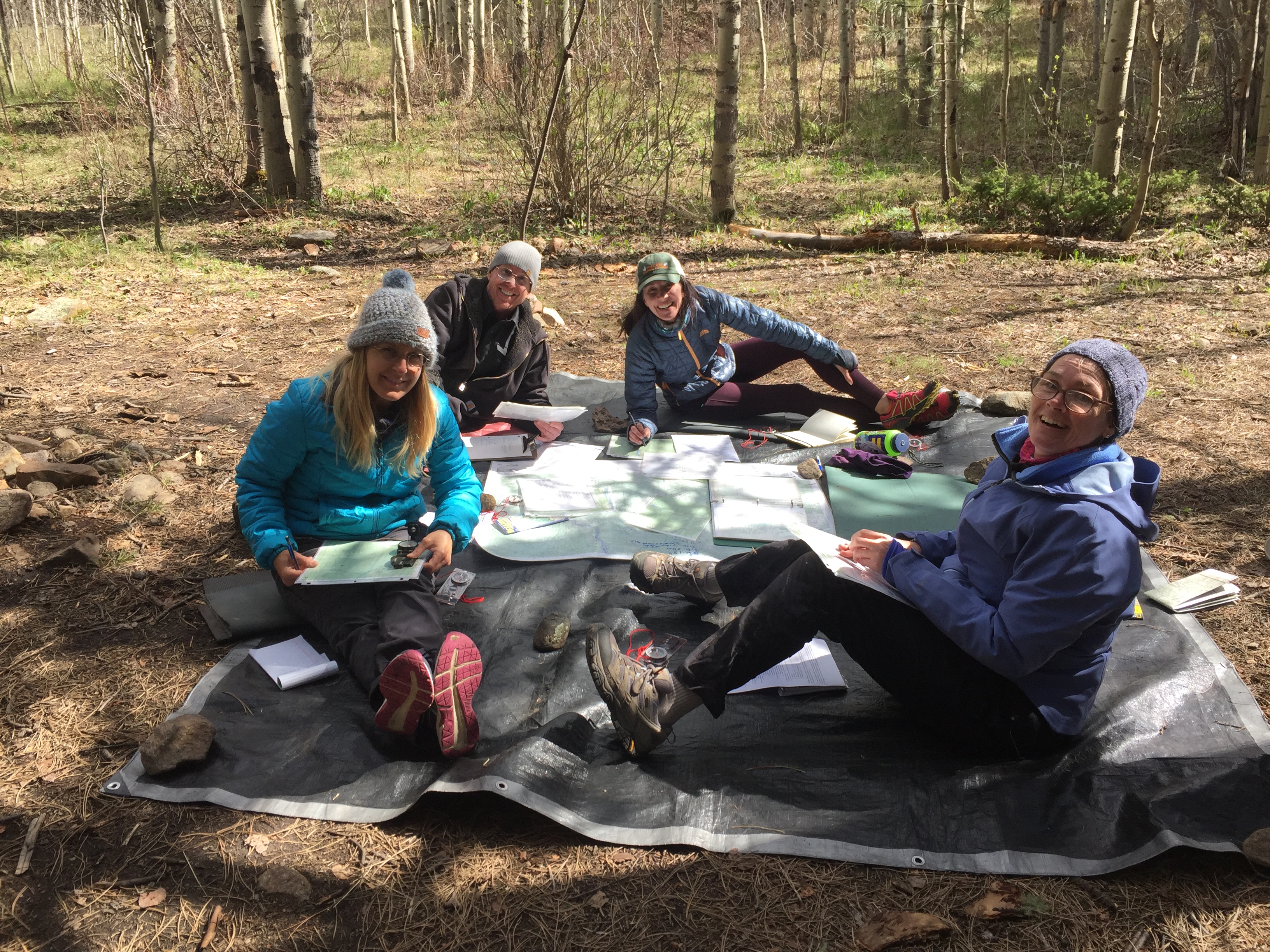
-Water: An essential and fairly immediate need in virtually every survival situation
1. Practice finding it
2. Practice preparing it for consumption
3. Learn how to protect your source
-Knots: Learn the “hammer and nails” of a survivor. With a knowledge of knots, you can improvise more effectively and keep you and yours safer.
1. Nomenclature of a line/rope
2. What makes a “good” knot?
3. Learn many multi-use, effective knots and their uses
4. Use those knots every day for many different purposes for the week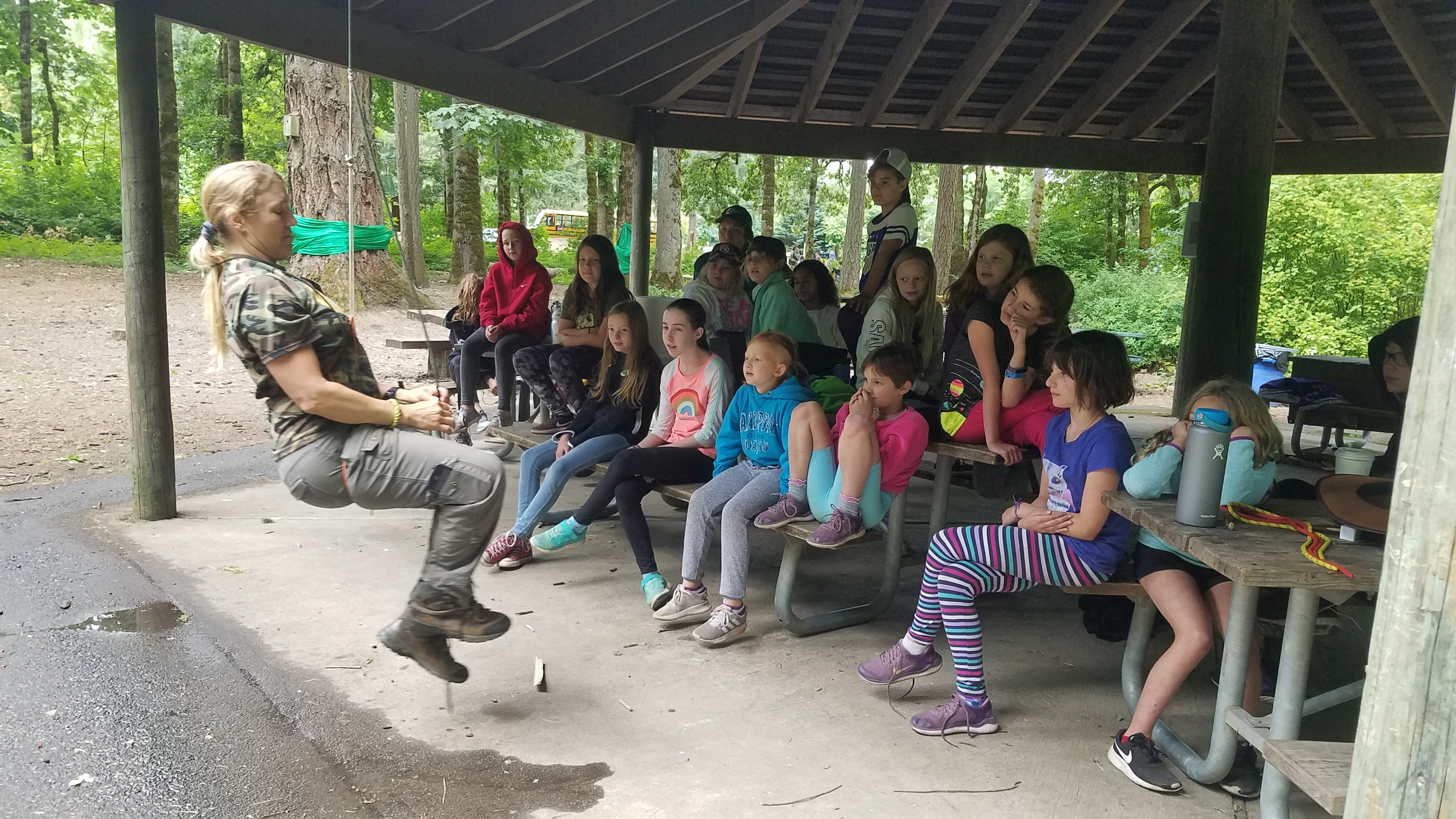
-Shelter basics: Learn how to make a safe home in whatever situation you find yourself.
1. What to look for in a shelter site
2. How to choose a design that works for the situation at hand
3. Practice making several simple tarp shelters and sleeping in them
4. Learn how to find and/or make a shelter out of natural materials
-Fire principles: Learn the fundamentals that many folks skip over and thus end up failing when a fire is most needed and is the hardest to make: in wet weather.
1. The fire triangle and how to balance it
2. Locating and preparing materials in various weather conditions
3. Practice several different fire making techniques
4. Learn different fire lays for different purposes
3. Practice using fire for cooking, signaling, light, warmth, etc…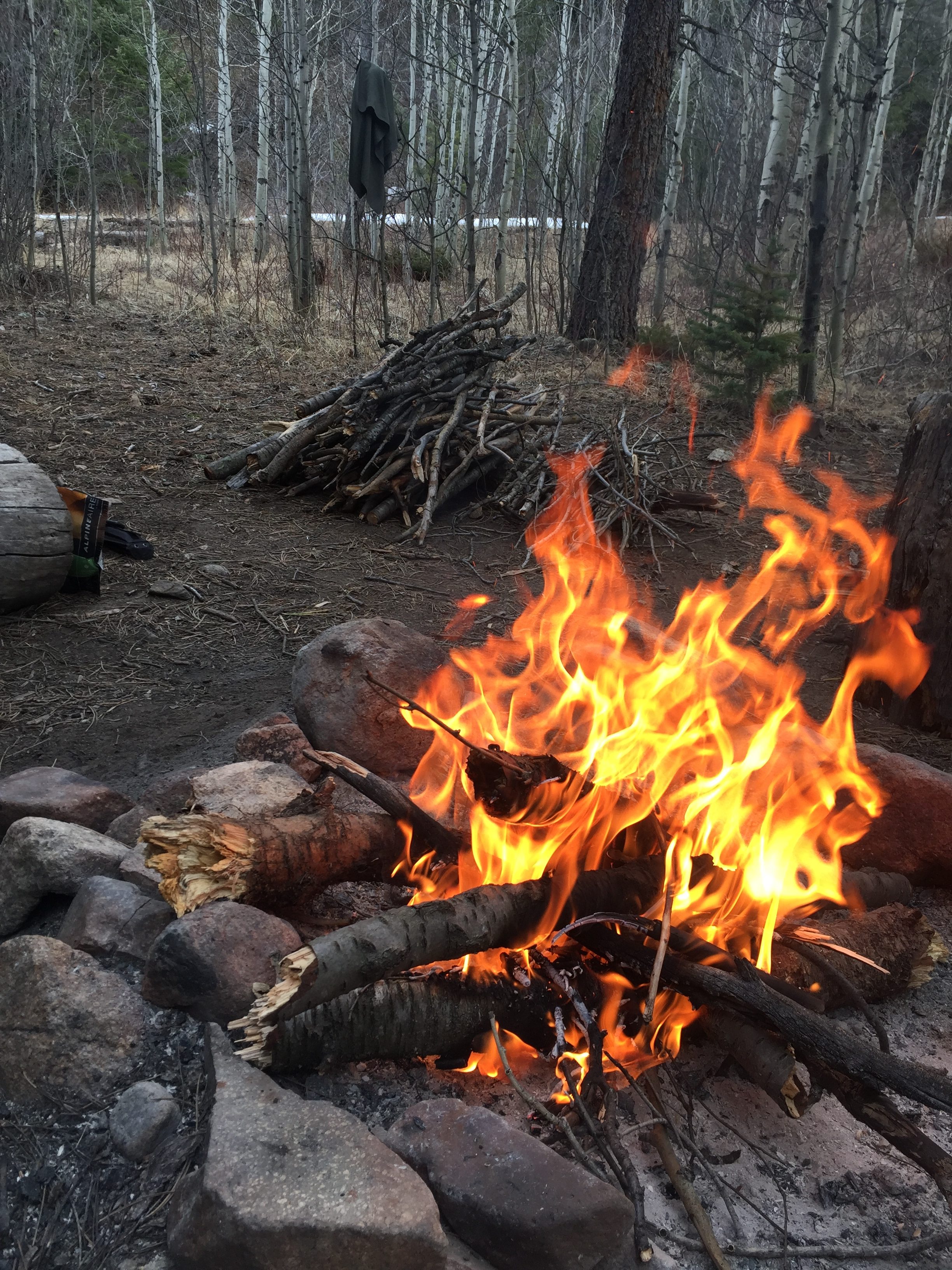
-Food: Learn how to use wisdom in your decisions around food when in a serious situation.
1. How to ration what you have immediately available
2. Practice using the edibility test for plants
3. Learn several different primitive snaring techniques for large and small game
4. Learn several different primitive fishing techniques for survival situations
-Health:
1. What are common injuries in the back country and how to avoid them
2. How to treat those injuries when they happen to others, or to you when you’re alone and must care for yourself
3. How and where to create “the facilities” in the back country and use them
4. How to deal with various hygiene issues in the wilderness like brushing teeth, improvised soap, etc…
– Survival Kits: Learn how to be prepared, how to make a kit for different trip scenarios.
1. Using the basic needs format to design a kit
2. What types of items to choose based on the type of kit you’re making
Class Size: maximum of 10 participants
What to Wear (Please contact us before purchasing any gear for this course. Our goal is to give you information to help you make informed purchase decisions in the future, not spend a lot of money on gear you may not actually need.):
– Closed toed shoes (hiking boots preferred)
– Long pants (synthetic lightweight best)
– Long sleeved shirt (lightweight synthetic best)
– Sun hat (wide brim-Cowboy type hats are generally best, waterproof great too)
– Comfortable breathable underclothes
What to Bring:
– 1 or 2 T-shirts
– 1 or two extra sets of underclothes
– At least 3 extra pairs of socks
– Warm layers (such as the following: warm hat, neck gaiter/s; balaclava; gloves (finger-less and/or regular) or mittens with liners; fleece, wool, or some other type of a thick insulated layer or two for top and/or bottom)
– A warm winter hat and warm gloves (may be finger-less wool)
– Leather gloves
– Rain gear (a good heavyweight poncho or rain jacket and pants)
– 4 liters worth of water containment (water bottles, bladder, etc…)
– 7 Breakfasts, 7 Lunches, and any snacks you prefer (all dinners will be provided)
– A food bag (solid stuff-sack to hold all your food and to easily hang food up if needed)
– A metal bowl and/or cup and desired utensils
– Camp Knife (this can be a folding or locking blade pocket knife approximately 2-4″ blade)
– Bolt Knife (fixed blade, full tang, 4-6″ blade) and a sheath
– Headlamp and extra batteries
– Bedroll sufficient for local nighttime temperatures seasonally appropriate (thermal pad (non-inflatables preferred) and sleeping bag)
– Shelter (tent or tarp (8′ x 10′ feet minimum) and line (strong, 1 twenty-foot length and 5 four-foot lengths minimum))
– Sufficient supply of all needed medications and health support items (at least 10 days worth), and all desired toiletries (toothbrush and paste, comb, etc.)
– Backpack (or you may substitute in its place: one 8′ x 10′ tarp (may double as your shelter tarp), one 20 foot length of para-cord, and about 12 feet of two inch thick webbing. We will show you how to make this into a constructed backpack if you don’t have one or would like to try a construction backpack for the week.)
Optional Items:
– Survival items you have questions about or want to practice skills with (maps, compasses, shelter pieces, fire starters, bought survival or medical kits, etc.)
– Sunscreen
– Sunglasses and/or safety glasses
– Bug spray (seasonal)
– Camp chair/crazy creek/sit pad
– Note taking materials
– Bivy sack and/or ground tarp
– Water purification systems you’d like to use/try
– Extra cordage/rope to use for various tasks
Times: This Course will meet at 4 PM on Saturday and wrap up one week later at the same time. Please see below for available dates.
Locations: All locations for this course will be within a two-hour drive (usually less) of the city listed in the course title. Directions to specific class locations will be emailed to you after registering for a particular class-please see below for class dates and general locations.
Age requirements: This will be a very active course, we are likely to hike several miles per day, group and weather permitting for at least 3 of the 7 days. Clients should be a minimum of 10 years old and in reasonably good physical shape. All children 17 years or younger must have legal parental permission to attend the course and all children 10-16 years old must be accompanied by a parent or legal guardian.
Private Group Courses are available:
We also do private courses, team-building retreats, corporate events, birthday parties, etc… You get the folks together and tell us when you want to go-weather and schedules permitting! We prefer that you allow us at least 30 days advance notice to schedule a course. If you’d like to explore these options please contact us at: Info@SERETraining.US
Cancellation Policies:
Trip cancellation by clients must take place at least 28 days prior to the start of the trip in order to be eligible for a refund.
On rare occasions, a trip is prevented from running due to land closures relating to dangerous weather conditions, fires, etc. You will be notified promptly if a closure occurs and the trip is prevented from running and will receive the option to reschedule for a later trip date or to receive a full refund.
Note: Please don’t bring pets unless cleared in writing through SERE Training School Instructors.
Additional Questions about this course can be addressed to: Info@SERETraining.US